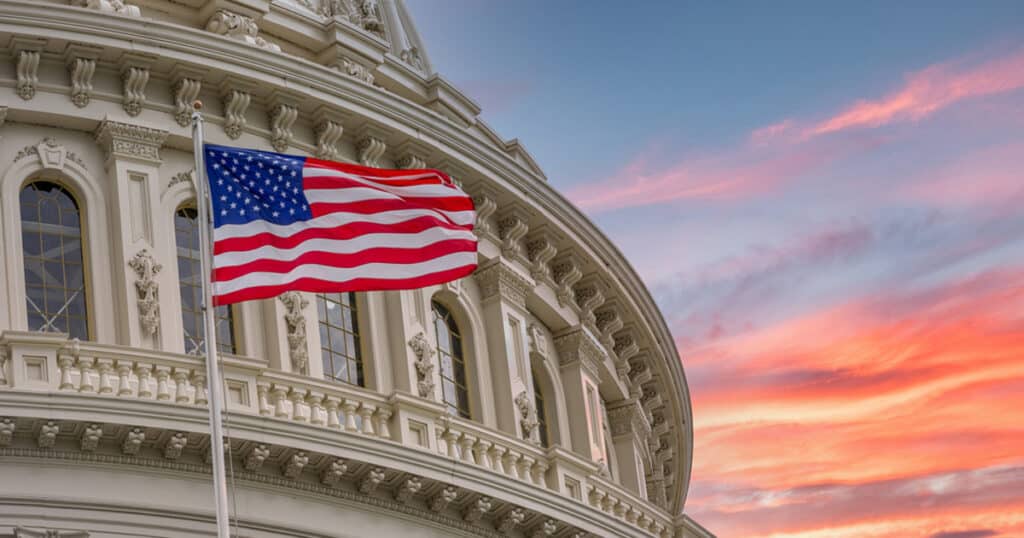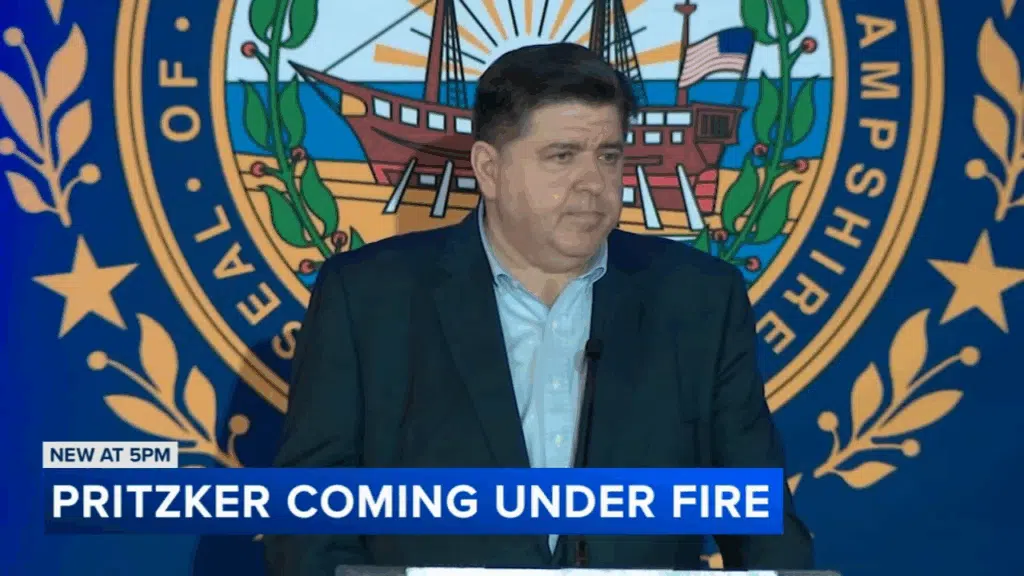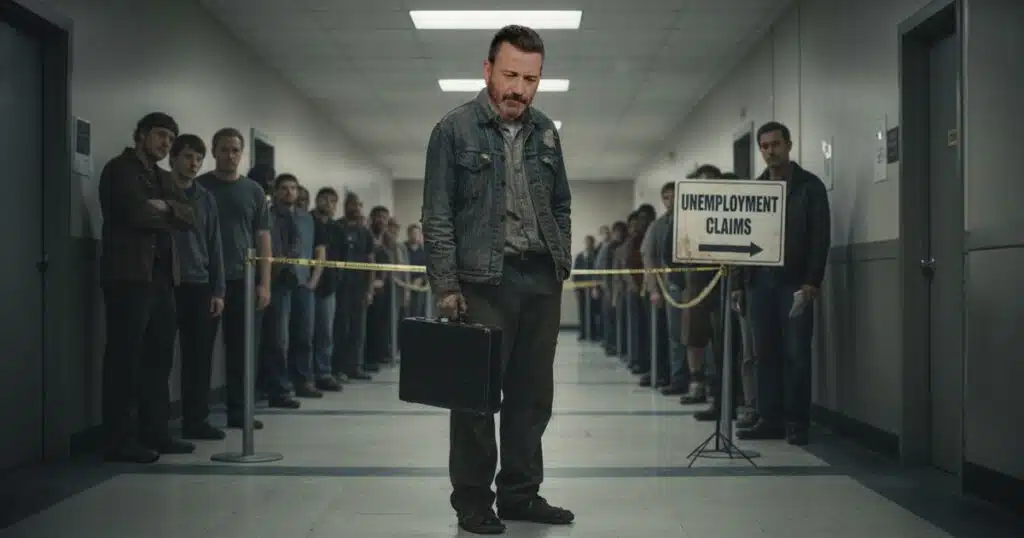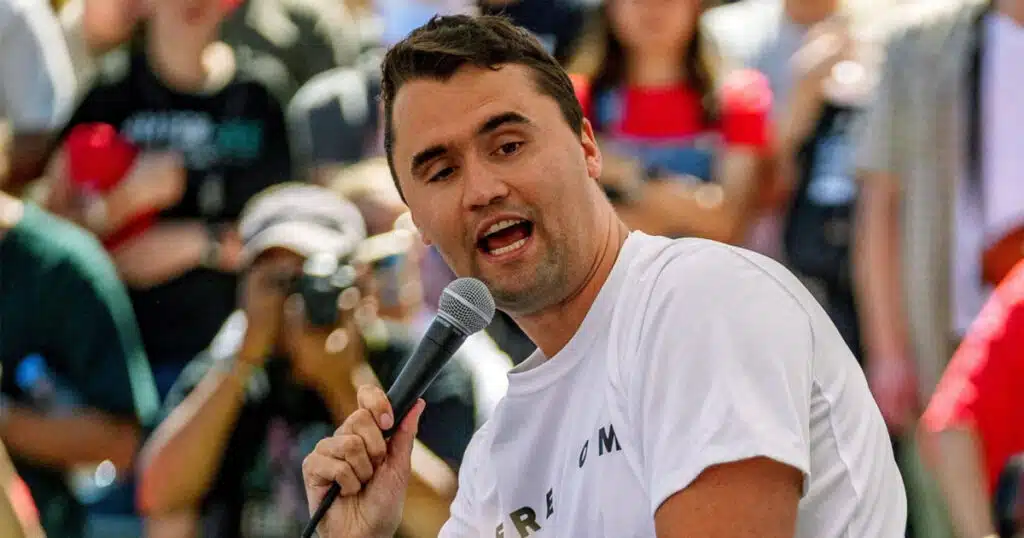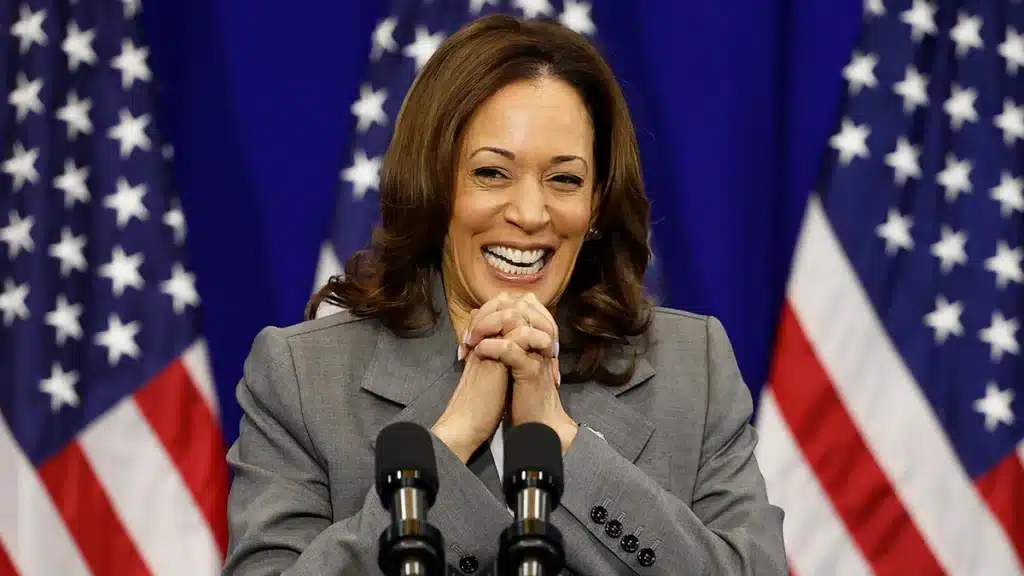
The Kamala Harris Non-Sequitur on Energy Independence
We don’t want to be dependent on foreign oil and we should invest in diverse forms of energy. That’s what we heard from sitting Vice President Kamala Harris in the most recent debate spectacle. Her exact words: “My position is that we have got to invest in diverse sources of energy so we reduce our reliance on foreign oil.”
Now let’s be fair. If she wants to convince people to spend more money on “diverse” energy sources, then this is a clever angle. If you’re one of those stubborn contrarians opposed to scaring people about the climate, then perhaps you’ll join up in the spirit of American independence. Renewables are not just about being green—they’re about freedom from the stranglehold of foreign powers. And with people wising up to the not-so-green realities of wind and solar, we would be prudent to find an alternate virtue to which we can appeal. Independence. Very clever.
So much for fair. Now let’s be accurate. If your goal is to avoid dependence on foreign oil, then we can simply use American oil. Our country is flush with the stuff and we are quite good at getting it out of the ground, thanks especially to the fracking boom. Ever since 2018 the U.S. has been the world’s largest oil producer—a title previously held by Saudi Arabia and Russia. Among countries well-positioned for oil independence, ours is head of the class. But that’s not a complete picture.
It’s one thing to have the oil (geologically speaking). It’s another to extract it, transport it, refine it into usable products, and get those products to the consumer. Thanks to human ingenuity, we have the science and engineering to do those things in a largely safe and responsible manner (the dramatic reduction in methane emissions is a good example). Accidents are far less frequent than even just 20 or 30 years ago. But even with responsible industry behavior we face a persistent obstacle—government behavior. The reasons are a topic for another day, but it is a plain fact we have government officials and agencies who raise themselves up as fierce enemies of our friend, the hydrocarbon.
So they do things like shut down pipeline projects. And they arbitrarily raise the cost to drill on public land while simultaneously cutting the cost for producing “renewable” energy on the same land. And they impose exceedingly aggressive limits and thresholds that threaten grid reliability. And the pièce de résistance: they team up with media friends to inundate the citizenry with alarmist messaging until we’re all convinced we must quit our addiction to fossil fuels or risk our own destruction. If your friends from the oil and gas industry look tired, this is why.
I should point out this sort of obstructionism does not fully permeate our government at all levels. There are pockets of reasonable thinkers who make some effort toward smart decisions about energy policy. But the anti-hydrocarbon religion has been sufficiently evangelized so as to hinder what ought to be one of our most revered industries. It is certainly the most valuable, existentially speaking. As we say in The BEN Declaration, energy independence is essential to American independence. In this regard, we agree with Vice President Harris—we don’t want dependence on foreign oil. But her solution as advertised is disingenuous and defies fundamental logic.
Very recently I wrote a blog post where I employed the metaphor of a horse race, the horses being various energy sources. The article ended with the notion that someone might be throwing rocks in the path of the lead horse. And then I watched a presidential debate where one of the candidates implied that the lead horse from our own country cannot finish the race. So naturally she would like us to shoot that horse and put our “investment” elsewhere. Say, there’s a nice palomino over here with a beautiful gold coat and a lovely white mane. Unfortunately, it only has three legs.
Michael O’Sullivan is Program Director and COO for Blue Energy Nation, a non-profit committed to educating young people on energy realities. He is also a popular podcast host and an advocate for smart energy choices.
This article was originally published by RealClearEnergy and made available via RealClearWire.
